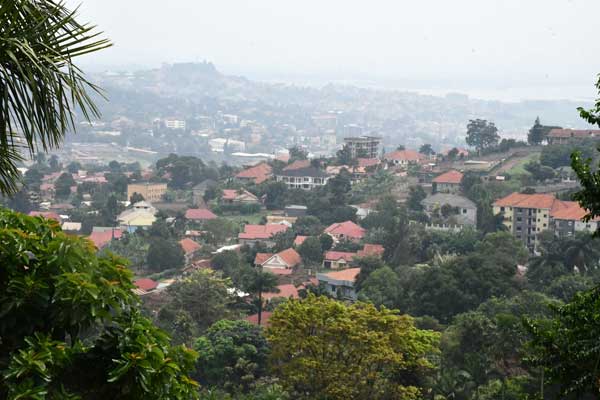Prime
Govt to collect Shs145b from rental income tax

Whereas government has had performance challenges in regard to rental income tax, it is putting in place a number of measures that it hopes will support it to realise set targets. Photo | file
What you need to know:
The target, if achieved, would have reversed a weak performance registered during the period between July and December 2021
Government has indicated it expects to collect at least Shs145b from Rental Income Tax within Kampala Metropolitan Area during the 2022/23 financial year.
The target, if achieved, will reverse the weak performance registered during the period between July and December 2021, in which Uganda Revenue Authority (URA) registered a Shs95.6b deficit.
Responding to Monitor’s inquiries about projected revenues from Rental Income Tax, Mr Ramathan Ggoobi, the Ministry of Finance permanent secretary, said URA is expected to collect Shs145b this financial year within Kampala Metropolitan Area given that there has been a number of improvements effected by government to improve its collections.
However, Mr Ggoobi did not give more details about the matter.
Rental tax remains a major revenue source for government but has at the same time presented the threat of dampening growth in the real estate sector that continues to experience challenges due to Covid-19 related disruptions and a slowdown in economic growth.
Mr Robert Lumanyika, the URA acting public and corporate affairs manager, told Monitor that the new rental income tax amendments had already taken effect, which means that as of July 1, individuals earning an income from rentals will be required to pay 12 percent of annual income after removing the Shs2.82m threshold, while companies will be required to pay 30 percent after expenses, which are capped at 50 percent.
Recently, Mr John Musinguzi Rujoki, the URA commissioner general, noted that whereas there were a lot of Ugandans earning sizable incomes, many of them were not paying taxes yet they continue to demand and enjoy services paid by a few Ugandans.
URA estimates that there are about two million Ugandans on the tax register, out of which only a million are consistently compliant.
Government has previously indicated that there is need to widen the tax base with each person, who has an income, contributing towards national development.
In 2020, the Ministry of Finance entered into an agreement with RippleNami with the view of building a system that would improve tax-rated property mapping to improve rental income tax compliance.
The system, which has since been developed and codenamed the Rental Tax Compliance System visualises data, matches rental properties with their owners and estimates the value of rental income from a property.
The Rental Tax Compliance System is part of a larger digital component under the Domestic Revenue Mobilisation Strategy 2019/24, in which government seeks to increase the rate of tax to gross domestic product from under 11 per cent.
Compliance for Rental Income Tax remains a challenge but with the current improvements, government is hoping to realise targeted collections.
Credible rental data
Compliance for Rental Income Tax remains a challenge but with the current improvements, government is hoping to realise targeted collections.
While signing the agreement in 2020, Mr Rujoki said URA would work closely with government and utility companies to provide the necessary data which will be integrated with the Rental Tax Compliance System to come up with credible rental data.





